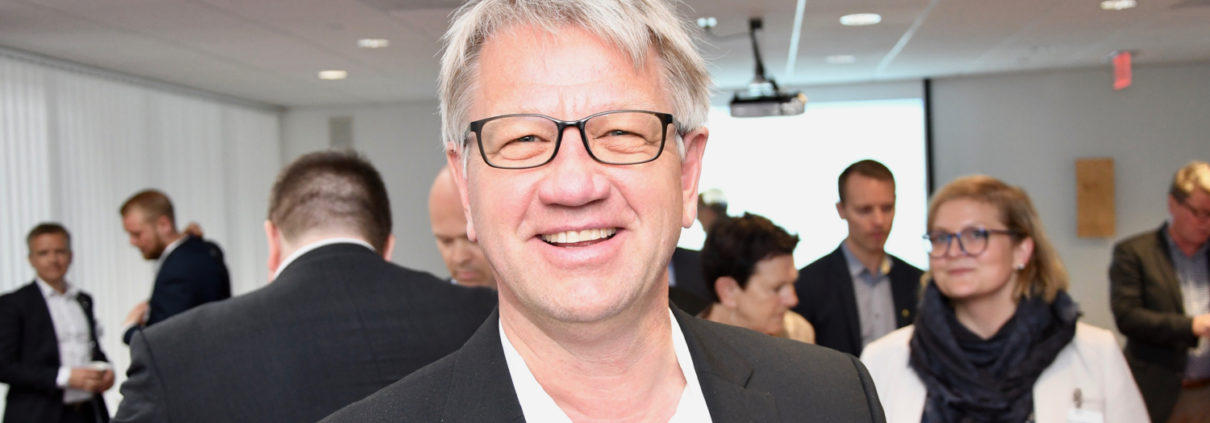A game-changing business model
Alignment of financial incentives between Schlumberger and operators makes production of oil and gas more efficient.
“We are introducing a game-changing business model. By aligning financial incentives, all parties are interested in doing things in the most cost-effective way,” says Tom Fidjeland, VP Rig Equipment, Drilling Systems at Cameron, a Schlumberger company.
Oil companies are in demand for quickly installed, good productive wells. Service companies have traditionally almost been interested in the opposite. When paid by the hour, there are in theory few incentives to accomplish tasks quickly.
“Something had to change, this was not productive. Our answer is Total Well Delivery – The Industry Model. Again, it is an alignment of financial incentives between us and operators. This can be done in many ways by aligning operational goals with financial goals, so that the suppliers make more money if the operator makes more money,” says Fidjeland.
PHOTOS: NorTex workshop in Houston
A data-driven workflow has enabled Schlumberger to offer this new business model. Due to its size and vertical integration, Schlumberger has full control of a wide range of processes, that typically would involve a group of suppliers specialized in their own fields of operation.
A shift from an operator model to an industry model implies integration of hardware, services and crew, enabled by total system automation and a digital environment.
“Having full control of our own equipment enable us to take more risk and guarantee that the equipment runs. If downtime is on us, there are strong financial incentives to do things better. The way of thinking is changing fast,” says Fidjeland.
He gave a presentation of the Industry Model at a Norwegian-Texan (NorTex) seminar in Houston Friday, as part of the Agder delegation pre-OTC program.
Last year, Fidjeland and his Kristiansand based company Cameron, hired several data engineers from the Agder area, to support the development and implementation of the Industry Model. Fidjeland credited the Agder ecosystem for innovation and business development for supporting the regional industry.
“I am very enthusiastic about how the University of Agder are building expertise within artificial Intelligence and machine learning. Students should focus on automation and digital transformation. In Kristiansand, we have been able to find highly skilled people, many of them product of the local university, more easily than at other locations,” says Fidjeland, who is also on the Board of Directors at the University of Agder.


